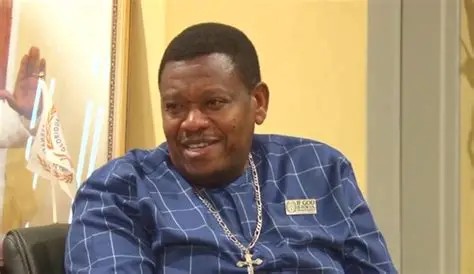A shocking revelation has emerged following the suspension of fuel allocation to Simso Oil and Transport Company by the Malawi Energy Regulatory Authority (MERA).
The Pangolin Online investigations have revealed that the fuel hoarding scandal is part of a wider, politically-orchestrated plan to engineer artificial shortages and portray the governing Malawi Congress Party (MCP) as failing ahead of the September general elections.
In an official notice issued on Wednesday, MERA disclosed that Simso Oil was hoarding more than 200,000 litres of petrol at its depot in Lilongwe while its service stations remained dry.
The regulatory body described the conduct as unjustifiable and disruptive to national fuel stabilization efforts amid a persistent crisis. 200,000 litres is enough to fill up 3,300 vehicles of 60 litres fuel tank capacity.
Sources within regulatory and intelligence circles have told this publication that the fuel hoarding incident is not isolated. Rather, it forms part of a coordinated and deliberate sabotage campaign being engineered by operatives aligned with the opposition Democratic Progressive Party (DPP), with the goal of fomenting public frustration and delegitimizing the MCP-led government of President Dr. Lazarus McCarthy Chakwera.
“This is not just a business decision gone rogue. It is a politically motivated economic attack. The intention is to manufacture scarcity, incite civil unrest, and brand the government as incompetent in the run-up to the elections,” a high-ranking government official familiar with the investigation said on condition of anonymity.

At the centre of the controversy is the owner of Simso Oil and Transport Company Abraham Simama. Investigators allege that the businessman has also been implicated in sugar hoarding and cross-border smuggling operations into Tanzania, another key area of commodity manipulation being used to cause domestic shortages.
According to internal briefings from Malawi Revenue Authority (MRA) and the Malawi Police Service (MPS), trucks linked to the same businessman have been intercepted multiple times along northern corridors, loaded with large quantities of sugar meant for illegal export.
“He is using a network of logistics and fuel supply lines to push two agendas: one economic, through profiteering; and one political, by crippling confidence in public service delivery,” said a source at the MRA.
The sugar hoarding and fuel manipulation cases are reportedly being investigated jointly by MERA, MRA, and the Anti-Corruption Bureau (ACB), as part of a broader crackdown on economic sabotage networks.
In its 7 August statement, MERA condemned Simso’s conduct, stating: “The conduct of SIMSO Oil and Transport Company undermines national efforts to stabilize fuel supply during the ongoing crisis. Fuel importers and Oil Marketing Companies are not allowed to allocate any stocks to SIMSO until further notice.”
The regulator has since ordered the company to immediately release and distribute the withheld fuel stock to its service stations.
While MERA stopped short of naming individuals, pressure is now mounting for the government to act decisively, including criminal prosecution for economic sabotage.
Economic observers and civic voices say the developments fit into a disturbing trend where political players are allegedly influencing essential commodity markets to score electoral gains.
Last month, several sugar wholesalers were found hoarding thousands of bags of sugar during a nationwide shortage. Some were later found to have links with businesspersons closely associated with the opposition.
Fuel, sugar, maize, and fertilizer are among politically sensitive commodities whose artificial scarcity can quickly ignite social tensions.
“What we are seeing is hybrid warfare, using economic levers to destabilize the state and create a sense of failure. It is an old trick: create panic, blame government, win votes. But in this case, lives and livelihoods are being put at risk,” said a University of Malawi economist.
Minister of Energy Ibrahim Matola condemned the act and hinted at possible collusion between some fuel importers and politically connected businesspeople to distort the supply chain.
“We cannot allow selfish, politically-driven actors to sabotage national efforts at restoring fuel supply. We are watching, and the law will take its course,” Matola said.
Government has struggled in recent months to maintain steady fuel availability due to forex shortages and global price volatility. Critics warn that such sabotage only worsens the problem, placing additional burden on ordinary Malawians.
Political analysts say the revelations are likely to harden public sentiment against the DPP, which has struggled to shake off its legacy of corruption, crony capitalism, and elite impunity during its time in office between 2014 and 2020.
“If proven true, this exposes the DPP’s desperation and dangerous disregard for national interest. It is unpatriotic and criminal to use economic pain as a political weapon,” said a political commentator.
Meanwhile, MERA has asked the public to report any illegal fuel trading practices to the nearest police station or through the authority’s hotline and email channels.








